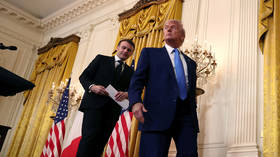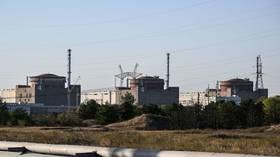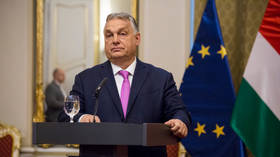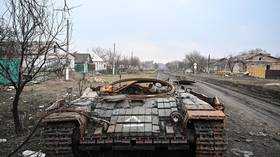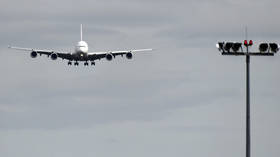China's embassy in Australia condemns Canberra's ‘provocative’ cancellation of Belt and Road deals
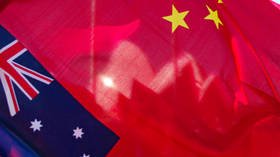
Australia has pulled out of two deals agreed between the state of Victoria and China as part of Beijing's ‘Belt and Road Initiative’. The move has drawn heavy criticism from the Chinese embassy in Canberra.
The Australian Foreign Minister Marise Payne announced on Wednesday that she had stopped four deals overall, including a Victoria-Beijing agreement designed to underpin the expansion of Chinese infrastructure in the south-eastern state.
The decision was branded “unreasonable and provocative” in a statement by the Chinese embassy.
“It further shows that the Australian government has no sincerity in improving China-Australia relations. It is bound to bring further damage to bilateral relations, and will only end up hurting itself,” the delegation added.
Also on rt.com China halts Australian hay imports amid escalating trade rowThe two Australian deals are part of the Belt and Road Initiative, China's global infrastructure project that aims to build a trans-continental energy and transport network between Asia, Europe and other regions.
Victoria's Premier Daniel Andrews had inked a 2018 memorandum of understanding with the National Development and Reform Commission of China, as well as a 2019 framework agreement, building on the previous deal.
Payne also announced she had axed a 1999 scientific partnership with Syria and a deal struck between Iran and Victoria's Education and Training Department in 2004.
“I consider these four arrangements to be inconsistent with Australia's foreign policy or adverse to our foreign relations in line with the relevant test in Australia's Foreign Relations (State and Territory Arrangements) Act 2020,” she said in a statement.
Also on rt.com Australian national broadcaster stops airing Chinese state-run TV over human rights concernsPayne's announcement marks her first use of new powers granted by parliament in December, which allow the Commonwealth to veto any deals between local administrations and foreign governments.
The powers came in amid a period of frosty relations between Canberra and Beijing due to disputes over the Covid-19 pandemic and Australia's exclusion of Chinese tech company Huawei from its 5G cellular network.
In response, China – Australia's largest trading partner – slapped tariffs on a number of Australian imports, including wine, beef, barley and lobster.
Think your friends would be interested? Share this story!




